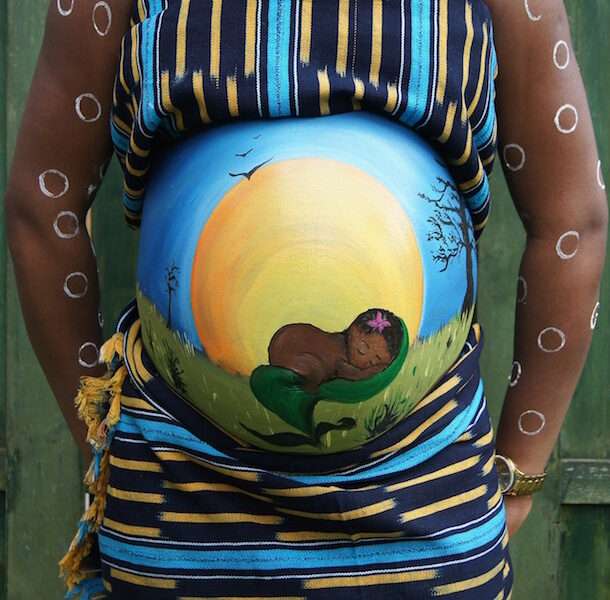

I’ve been getting tons of questions lately in my practice about the benefits of CBD (cannabidiol) oil. Women are interested, but also concerned about how CBD oil might affect their hormones, fertility, and the health of their babies. The good news is that while there are some concerns about THC (found in marijuana products that are commonly smoked, vaped, or consumed—and is the compound in cannabis that creates the “psychoactive high”) when it comes to fertility, conception, and pregnancy, there are a ton of wonderful benefits women can get from a high quality, organic, pure CBD product used topically or internally by way of tinctures, capsules or suppositories.
(Just to be perfectly clear: I don’t recommend that women who are trying to conceive or are pregnant should smoke or vape CBD or THC at all, ever.)
In order to understand the difference between THC and CBD products, and the amazing benefits of CBD, first you’ll need to understand your endocannabinoid system (ECS).
The ECS is the body’s biochemical communication and internal balancing system. It produces its own endocannabinoids—molecules that bind to and activate our cannabinoid receptors and keep a wide range of biological processes in equilibrium. Endocannabinoid receptors are found all throughout our body, including in the brain, organs, connective tissues, glands, and immune cells.
The endocannabinoid system is involved in regulating a variety of physiological and cognitive processes, including fertility, pregnancy (during pre and postnatal development), appetite, pain-sensation, mood, memory, and mediating the pharmacological effects of cannabis.
There are two major endocannabinoids—anandamide and 2-AG—our body makes on it’s own. Anandamide has been found to reduce inflammation, and is thought to have an anti-anxiety effect. A lack of anandamide has been linked to stress-related mental health disorders, such as schizophrenia and depression, and 2-AG has been found to have a role in human orgasm (!!!).
With its complex actions in virtually all of the body’s organs, endocannabinoids are literally a bridge between body and mind. When functioning properly, they keep our mind, body, stress, and emotions in balance. When out of balance, a slew of health issues can result.
Although a little fluctuation in your ECS is natural, some folks experience consistently lower or higher levels of endocannabinoid molecules—and that fluctuation is tied to your other hormones, and ultimately your fertility (more on that later) and your overall health.
Imbalances in your endocannabinoid system are associated with issues like:
This is where CBD oil comes in.
CBD oil is an oil that contains a plant-based cannabinoid called CBD, or cannabidiol. More than 100 cannabinoids have been identified in the marijuana plant, some more beneficial than others. In multiple randomized trials, CBD has a <10% rate of adverse events. That’s a better safety profile than alcohol: “Extensive preclinical research—much of it sponsored by the U.S. government—indicates that CBD has potent anti-tumoral, antioxidant, anti-spasmodic, anti-psychotic, anti-convulsive, and neuroprotective properties. CBD directly activates serotonin receptors, causing an anti-anxiety effect, as well.”
The cannabinoid you might be more familiar with—THC—is the cannabinoid that gives you the psychoactive feeling of being high. While CBD and THC are both plant-based cannabinoids, they interact with your ECS in very different ways.
First and foremost, both CBD and THC work by mimicking the effects of anandamide and 2-AG. However, there is one major difference between them: even though they have the same chemical formula, the atoms are in a slightly different arrangement.
This tiny variation in atoms means that THC is psychoactive, while CBD is not. Therefore, the effects of THC and CBD you experience are very different. In fact, although there are benefits associated with TCH, many individuals experience difficulty managing the side effects associated with THC, meaning the cost often outweighs the benefits.
The effects of THC can include:
The bottom line: we know CBD is a potent anti-inflammatory substance and has many benefits on various organ systems in the human body, and ALSO provides a powerhouse of benefit to the reproductive system. It’s not the same as TCH, and can be a powerful tool you definitely want to consider adding to your reproductive toolkit.
Next week, I’ll cover the nitty gritty benefits of CBD oil in detail.
In the meantime, do you have more questions about how CBD can improve your hormone health and/or fertility? Let’s talk!
Schedule a consultation with me here.
© 2026 Sarah Jane Sandy. All rights reserved. Privacy Policy | Terms and Conditions |
Medical Disclaimer

Curious about your fertility health? Take this simple quiz to find out what factors may be harming your fertility, and learn what you can do about it!